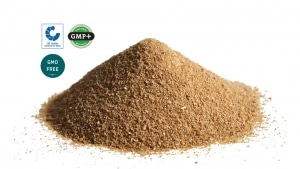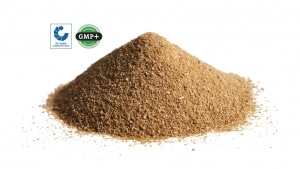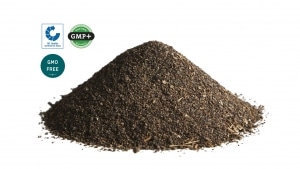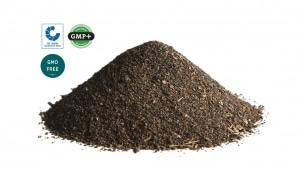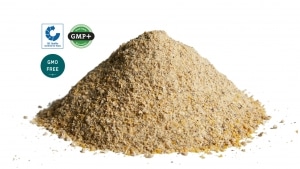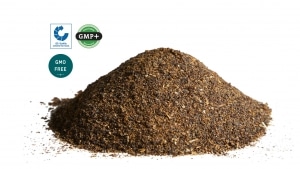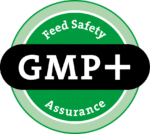How a pig producer boosted the sow’s milk yield
The sow’s lack of milking ability was the primary reason pig producer Hans Christian Gæmelke started feeding EP199. Read about how he uses the fermented rapeseed and seaweed protein and what the farm has achieved with its’ new sow feed.
Lack of milking ability
Hans Christian Gæmelke owns and manages Røj Landbrug in the South of Denmark. The farm has 500 year-sows, produces 17,000 finishers and runs 620 hectares of land on two properties in Lunderskov and Vejen.
Not enough milk triggered H.C. Gæmelke’s quest for a feed solution. So in 2020, he decided to try out EP199:
– I started using EP199 because I lacked milking ability, and I had heard that it would provide a better gut microflora for the sows, says the pig producer.
He first heard about the lactic acid fermented rapeseed and seaweed from a friend and afterwards in food networks, where European Protein attended. As a result, H.C. has experience with nearly all of European Protein’s fermented proteins. And today, he uses EP199 for his sows and fermented rapeseed (EP100i) for his weaner pigs.
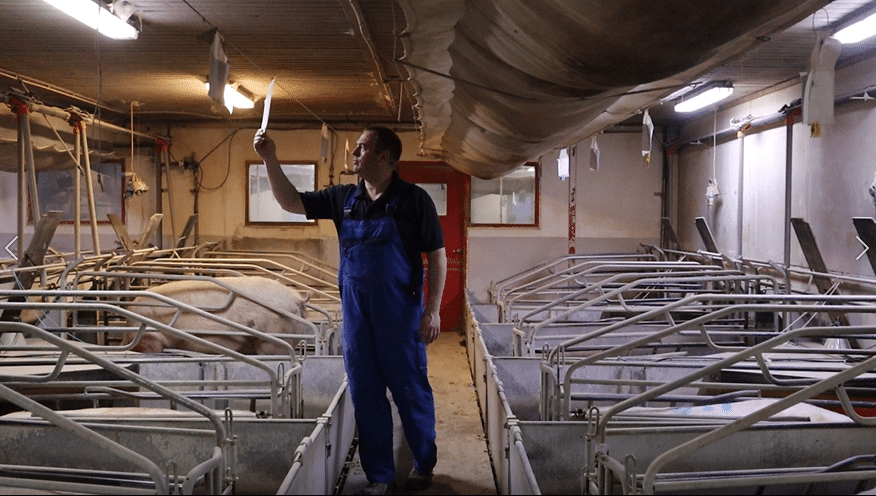
From sceptic to supporter
With mixed feelings, the farm workers at Røj Landbrug started using EP199.
Only a few pig producers had tried out the fermented rapeseed and seaweed before, and there was no farm data or scientific data on the effect of the proteins. So with the prospect of more milk, Røj Landbrug decided to join an EP199-project along with 34 other pig producers, where the University of Copenhagen would supervise the development of the gut microflora and inflammation over a period of 9 months.
– I remember a bit of scepticism back when we started with EP199. It was new and untested. But the farmworkers see today, after we introduced EP199 – the farmworker who has been in this farm for many years in particular – that we got stability in the production, say’s H.C. about the start-up.
Since introducing EP199, European Protein and the University of Copenhagen have gathered data from pig producers in an extensive health database documenting differences in productivity data, gut microflora, faeces, and blood samples before and during the use of EP199 in the feed. The overall results will be presented at European Protein’s second gut health seminar planned for the 3rd of May, 2023, in Fredericia, Denmark.
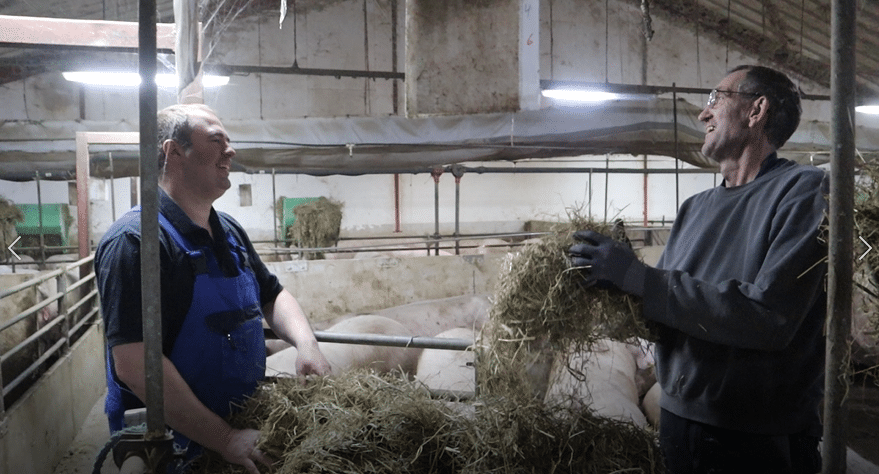
Hard to put all effects in monetary terms
When H.C. is asked how he measures the effect of EP199, the answer is not as straightforward as many of European Protein’s other farm cases. The reason is that the effect is not only related to milk production but also to softer parameters that are much more complicated to measure:
-We used to have sows where the rear teats were sunk in. Now we have sows with square utters and a full milking ability across the udder. We learn all the time, and luckily we have grown smarter because we didn’t care too much about gut health back in the day. Then, it was always about productivity, productivity, but today we know that a healthy pig produces better.
And stability, in particular, is crucial for the Danish pig producer:
– Stability is critical in a sow herd. I think it is hard to monetise because sometimes it is the satisfaction of easy management that everything runs smoothly.
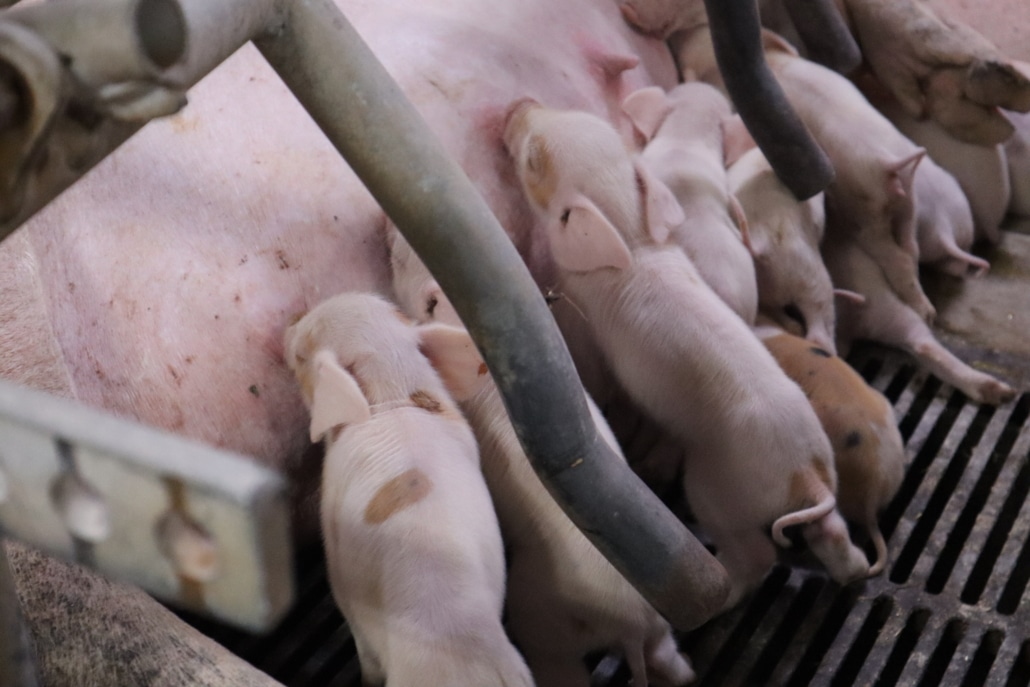
H.C’s encouragement to pig producers
If you have challenges with milk yield in the sow herd, H.C. encourages his fellow pig producers based on his experiences with EP199:
– If you have a sow herd with challenges – especially with milk yield or stability- I would try EP199 because we experienced better milking ability and a more stable sow herd.
15 years with European Protein
H.C. has been a customer of European Protein several times, and the collaboration totals up to 15 years. When asked about the collaboration, he says:
– European Protein has your back if you have doubts or want a second opinion, advice or guidance. I think that is great. European Protein is a family business, and the relationship becomes familial, which makes the collaboration even closer. Everyone has something at stake when we work as closely together as we do.
Use of EP199
EP199 is included by 6% in the feed for the young and gestated sows – replacing a part of your existing protein. When the gestated sows move into the farrowing section, the inclusion is increased to 9% throughout the lactation period and lowered to 6% after weaning.
About EP199
EP199 consists of fermented rapeseed and seaweed. The complementary protein replaces other protein sources and contributes to better utilisation of nutrients in the sows’ complete feed. In addition, EP199 increases the gut microflora diversity and leaves less room for pathogens to colonise. Consequently, the pathogenic bacteria in the sow faeces with the potential of contaminating piglets is reduced.
Are you in need of higher milk production?
Then fill in your data in the form below, and our distributor or we will contact you by e-mail or phone.
PROTEINS
For more information about our fermented proteins
ABOUT EUROPEAN PROTEIN
European Protein is a Danish family-owned protein producer. We work to promote health and productivity for animals through functional and sustainable plant proteins. The company was founded in 2011 and has protein factories in Denmark, Ukraine and the US.
HEAD QUARTER
European Protein A/S
Vorbassevej 12, 6622 Bække, Denmark
+45 75 38 80 40, [email protected]
VAT No. 33643675
FACTORIES
Denmark
Mangehøje 4, 7300 Jelling, Denmark
+45 75 38 80 40, [email protected]
Ukraine
222-a Vokzalna Street, Rokytne 09600, Kyiv Region, Ukraine
+38 044 390 40 54, [email protected]
USA
1201 N Ellis Rd #7055, Sioux Falls, SD 57107, USA
+1 605-338-9775, [email protected]

